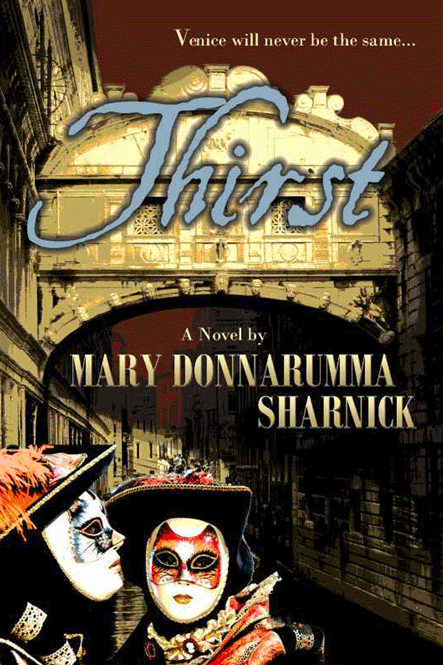Thirst
Venice, July, 1613: A suspicious drowning in the Lagoon and a deadly assault on a bridge shatter the dreams of Captain Lorenzo Contarini and his fiancée, la Signorina Caterina Zanchi, members of two noble Venetian families. While Caterina’s severe injuries banish her from society, her parents remove their other daughter, Leonora, from the convent to become Lorenzo’s hasty wife. Lorenzo’s investigation into his half-sister’s death compels him to accuse his maternal aunt, the Abbess of San Zaccaria, of murder. The ruthless Abbess deflects attention from herself by demonizing Leonora’s fellow nun and lover, Suor Serafina, as well as members of her own family. She is ably assisted by the feared and implacable Office of the Inquisition. The subsequent public trial brings together all of Venice and tests familial, religious, sexual, and political alliances. Old secrets are revealed to an avid crowd seeking cruel entertainment, forcing all present to wonder if it is possible to discover the entire truth. At once comforted by the ceaseless lap and sway of the enclosed Lagoon and threatened by the efficient cruelty of the Republic, those whose tale this is live and breathe in an ever-shifting world of bigotry and prejudice. Venice is never quite what it seems.
Testimonials
Almost every character in Thirst has a secret (or more than one). Secrets from the past threaten the present, which is not without its own fresher mysteries. Sharnick’s characters are genuinely interesting people, with believable lives and personalities. As the author deftly weaves the separate threads of those lives into a single tapestry that pulsates with danger and violence, nothing is obvious, and many things remain hidden until the end.
In some ways the strongest character in Thirst is Venice herself, beautiful and decadent, magical and cruel. It’s obvious that the author knows Venice and her history, and she brings it alive in an intensely sensual way. As other reviewers have said, Thirst would make quite a film.
Since the setting is Venice, everything is surrounded by water. It’s ironic, then, that all the characters thirst – for something out of reach, something that has been lost, something unattainable. The interactions among characters are never superficial. Two conversations between two pairs of sisters, toward the end of the book, are cases in point: layers upon layers of complexity emerge.
There is a lot of richness in this book. It’s by no means a light read, and some of the characters’ experiences are quite disturbing (though completely justifiable historically), but it is rewarding.

